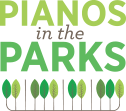Georg Friedrich Handel
| Born |
Georg Friedrich Händel
5 March [O.S. 23 February] 1685 Halle, Duchy of Magdeburg, Brandenburg-Prussia
|
|---|---|
| Died | 14 April 1759 (aged 74)
Westminster, Middlesex, England
|
| Burial place | Westminster Abbey |
| Works | List of compositions |
George Frideric (or Frederick) Handel (/ˈhændəl/ HAN-dəl; baptised Georg Fried[e]rich Händel, German: [ˈɡeːɔʁk ˈfʁiːdʁɪç ˈhɛndl̩] ; 23 February 1685 – 14 April 1759) was a German-British Baroque composer well-known for his operas, oratorios, anthems, concerti grossi, and organ concertos. Handel received his training in Halle and worked as a composer in Hamburg and Italy before settling in London in 1712, where he spent the bulk of his career and became a naturalised British subject in 1727. He was strongly influenced both by the middle-German polyphonic choral tradition and by composers of the Italian Baroque. In turn, Handel’s music forms one of the peaks of the “high baroque” style, bringing Italian opera to its highest development, creating the genres of English oratorio and organ concerto, and introducing a new style into English church music. He is consistently recognized as one of the greatest composers of his age.
See More :

Born in the same year as J. S. Bach and like him one of the supreme masters of the baroque era, Georg Friedrich Handel was a German composer who spent most of his life in England.
His reputation rest above all on his operas and oratorios, but some of his orchestral music, like Water Music and Music for the Royal Fireworks, have reached a popularity matched by few other works in the entire history of music.
In early childhood, Handel’s obvious musical talent was not encouraged; his father wanted him to study law, and he had to sneak a spinet given to him by his aunt into his attic to practice. He studied with a local organist in Halle, Germany, but at the same time obeyed his fathers wishes and enrolled at the University. However, when the father died, Handel began serving as organist at the Domkirche in Halle.
Later he accepted a post as violinist and harpsichordist in the Hamburg opera orchestra, but soon felt the need to escape the provinciality of northern Germany.
In 1706 he headed for Italy, where he spent more than three years, perfecting his technique in setting Italian words to music, and having operas, oratorios or cantatas given in Florence, Rome, Naples and Venice. He returned to Germany to become Kapellmeister to George, Elector of Hanover, who would soon be King George I of Great Britain. Handel chose to follow his master to England, and through the 1720s composed Italian operas for London stages.
During the 1730s, as the public began to lose some of its interest, Handel moved between Italian opera and English forms like the oratorio or the ode to attract new audiences.
After the premiere of the Messiah in Dublin in 1741, he put opera behind him and mostly gave oratorio performances, often at the new Covent Garden theatre. Works like Israel in Egypt, Samson, Saul and Judas Maccabeus established him as one of most influential figures of English music.
In his old age, Handel went blind, and also suffered from various other ailments caused by a stroke in 1737 and a serious carriage accident in 1750.
Nevertheless, he continued to compose until his death in London at 74 years of age.
Major works:
Vocal: Over 40 Italian operas, incl. Rinaldo, Julius Caesar, Orlando, Ariodante, Alcina, Serse. Oratorios incl. the Messiah, Israel in Egypt, Samson, Saul, Judas Maccabeus. Secular choral music incl. Acis and Galatea, Ode for St. Cecilias Day
Orchestral: 18 Concerti Grossi, 16 organ concertos (incl. The Cuckoo and the Nightingale), Water Music, Music for the Royal Fireworks.
Chamber and keyboard music: Trio sonatas, recorder and violin sonatas, Suites for harpsichord (incl. “The Harmonious Blacksmith”)
Qoute:
Beethoven on Handel: “He is the greatest composer that ever lived. I would uncover my head and kneel before his tomb.”
| Title | Key | Year | Level | |
|---|---|---|---|---|
All pieces: |
||||
| Air | D Major | – | 1 | |
| Fantaisia (G 60) | C Major | – | 5 | |
| Fugue (G 17) | A Minor | – | 7 | |
| Fugue (G 27) | B Minor | – | 6 | |
| Fugue (G 37) | B-flat Major | – | 6 | |
| Fugue (G 83) | C Minor | – | 6 | |
| Largo (Ombra mai fù) – from Xerxes | G Major | – | 5 | |
| Minuet | G Major | – | 2 | |
| Prelude & Lesson (G 18 & 19) | A Minor | – | 6 | |
| Sarabande | D Minor | – | 3 | |
| Sonata (G 56-58) | C Major | – | 6 | |
| Sonata (G 59) | C Major | – | 4 | |
| Sonatina (G 40) | B-flat Major | – | 3 | |
| Suite (G 1-4) | A Major | – | 6 | |
| Suite (G 175-178) | F Major | – | 7 | |
| Suite (G 30-33) | B-flat Major | – | 6 | |
| Suite (G 34-36) | B-flat Major | – | 5 | |
| Impertinence | G Minor | 1705 | 3 | |
| Sonatina in G, HWV 582 | G Major | 1722 | 4 | |
Copy by :pianosintheparks.com



Leave a Reply
Want to join the discussion?Feel free to contribute!